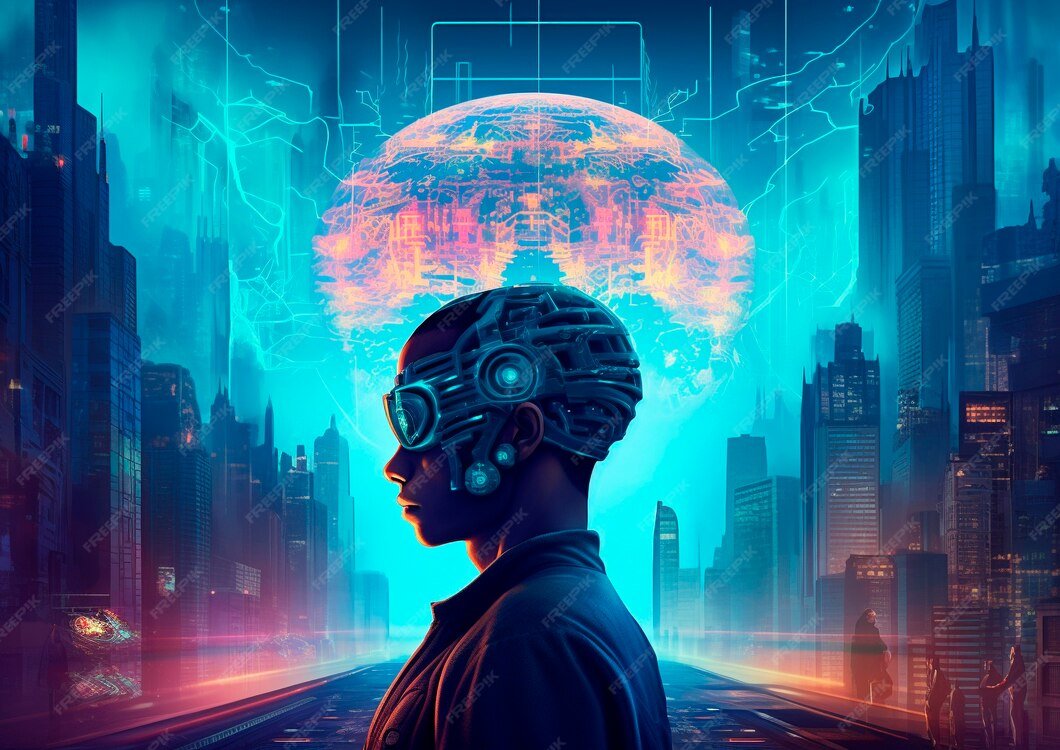Transforming Our World, One Algorithm at a Time
Artificial Intelligence (AI) is no longer just a concept from science fiction — it is rapidly becoming a central force in shaping the future of our society, economy, and personal lives. From smart assistants in our homes to predictive algorithms that influence what we see online, AI is embedded in nearly every aspect of modern technology.
As we look toward the future, one question becomes increasingly important: What role will AI play in shaping the world we live in?
This article explores the transformative impact of AI across key sectors and examines both the promises and challenges that lie ahead.
What Is Artificial Intelligence?
At its core, Artificial Intelligence refers to the development of computer systems that can perform tasks typically requiring human intelligence. These tasks include:
- Learning from data (machine learning)
- Recognizing patterns (like speech or images)
- Understanding language (natural language processing)
- Making decisions (autonomous systems)
- Solving problems in real time
Modern AI systems are built using vast amounts of data, complex algorithms, and powerful computing infrastructure — enabling them to not just mimic, but in some cases exceed human capabilities.
AI in the Future: Key Areas of Impact
1. Healthcare: Smarter, Faster, More Accurate
AI is revolutionizing medicine in profound ways:
- Early diagnosis: AI algorithms can detect diseases like cancer or heart conditions earlier and more accurately than some doctors.
- Personalized treatment: AI analyzes patient data to recommend individualized therapies.
- Medical imaging: AI systems can scan X-rays, MRIs, and CT scans with incredible precision.
- Virtual health assistants: Chatbots and apps powered by AI offer 24/7 health support and mental wellness monitoring.
Future Outlook: In the coming years, AI will become an integral part of hospitals, clinics, and even home care — making healthcare more accessible and efficient for everyone.
2. Education: Personalized Learning at Scale
AI is set to change how we teach and learn:
- Intelligent tutoring systems adapt in real time to student strengths and weaknesses.
- Automated grading saves teachers time and offers instant feedback.
- AI-driven content creation can develop quizzes, lessons, and learning paths.
- Language learning and accessibility tools powered by AI help break down barriers globally.
Future Outlook: By 2030, classrooms may become intelligent environments where each student receives a customized education based on their unique learning style and pace.
3. Transportation: Autonomous and Efficient
Self-driving technology is one of the most publicized applications of AI:
- Autonomous vehicles are being developed for cars, trucks, drones, and even ships.
- Traffic prediction and optimization algorithms reduce congestion in cities.
- AI pilots could one day power planes and flying taxis.
Future Outlook: Cities will be redesigned for autonomous transportation, reducing accidents and emissions, and improving accessibility for those unable to drive.
4. Workplace: The Rise of Human-AI Collaboration
AI won’t just replace jobs — it will reshape them:
- Automation will handle repetitive, dangerous, or time-consuming tasks.
- AI assistants will help with scheduling, data analysis, and customer service.
- Decision support systems will guide professionals in fields like law, finance, and logistics.
Future Outlook: The workforce will evolve into a hybrid model, where humans and AI systems work together, increasing productivity and creativity. Lifelong learning and upskilling will be essential.
5. Finance and Business: Data-Driven Decisions
AI is already changing how money moves:
- Algorithmic trading outpaces human speed and accuracy.
- Fraud detection systems analyze millions of transactions in real time.
- Chatbots provide customer service 24/7.
- Credit scoring and loan approvals are increasingly handled by AI.
Future Outlook: AI will make financial systems smarter and more inclusive, but it must be regulated to avoid bias and misuse.
6. Entertainment: Personalized and Immersive
AI is transforming how we consume and create content:
- Streaming platforms use AI to suggest what to watch next.
- Music and art generation tools are creating AI-produced creative works.
- Video game AIs offer more realistic, responsive opponents and dynamic storytelling.
Future Outlook: Entertainment in the future will be hyper-personalized — AI could create movies, music, or games in real time, tailored to your preferences.
Global Implications: Benefits and Challenges
The Benefits of AI in the Future
- Efficiency: Automation saves time and resources.
- Accessibility: AI helps break down barriers for people with disabilities or language differences.
- Scalability: AI can provide solutions at a scale no human workforce could match.
- Insight: AI can detect patterns in data that humans cannot, helping solve global problems.
The Challenges of AI in the Future
- Job displacement: Millions of jobs could be replaced or redefined by AI.
- Bias and discrimination: AI trained on biased data can reinforce inequalities.
- Privacy concerns: AI-powered surveillance and data mining raise ethical questions.
- Control and accountability: Who is responsible when an AI system causes harm?
- Superintelligence risk: Theoretical concerns about AI surpassing human intelligence and becoming uncontrollable.
Ethical and Responsible AI Development
To ensure AI shapes the future for good, we need a framework of responsible development:
- Transparency: Make AI decisions explainable and understandable.
- Fairness: Ensure AI does not perpetuate discrimination or inequality.
- Security: Protect AI systems from misuse, manipulation, or hacking.
- Human oversight: Keep humans in control of critical decisions.
- Global collaboration: Build international cooperation to prevent misuse and develop standards.
Final Thoughts: The Future Is a Partnership
AI will not simply shape the future — it will become part of it. It will be our co-worker, assistant, advisor, and even a form of creativity and intelligence in its own right.
But as powerful as AI is, it should not replace human values, ethics, and compassion. The future will be defined by how wisely we develop, deploy, and integrate AI into society.
Will AI build a better world — or deepen our challenges?
The answer depends on the choices we make today.
AI is not destiny. It’s a tool. And the future is still ours to shape.


